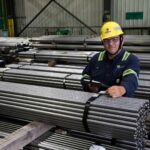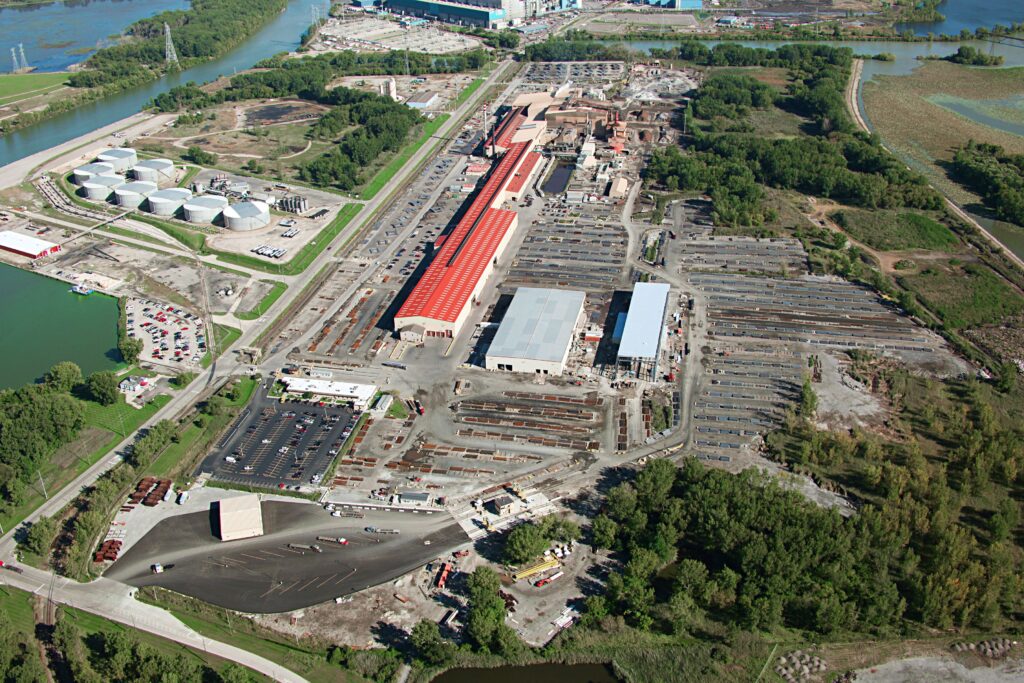Gerdau launches feasibility studies for construction of special steel unit in Mexico

The company’s special steel and long steel divisions of in the United States and Canada join B Corps Gerdau Summit and Siderperu, a new milestone of its strategy to shape a more sustainable future

Gerdau, Brazil’s largest steel producer, announces the certification of its special steel and long steel divisions in North America, including assets in the United States and Canada, as Certified B Corporations™. The North American divisions join Gerdau Summit, the company’s joint venture with the Japanese companies Sumitomo Corporation and Japan Steel Works, dedicated to supplying parts for wind power generation, and Siderperu, the company’s steel production division in Peru. The two companies were the world’s first steel producers to become B Corporations.
Certification is an integral part of the company’s sustainability agenda, as it recognizes Gerdau’s initiatives and best practices in this field, effectively connecting the steel production business with the purpose of empowering people who build the future, leaving a positive legacy for society.
“The certification of Gerdau’s operations in the United States and Canada reaffirms the company’s centenary commitment to contributing to solving society’s challenges and dilemmas, promoting a positive impact in the regions where it operates,” said Gustavo Werneck, CEO of Gerdau. “Our assets in North America, whose production matrix is 100% based on the recycling of scrap metal, ensuring the production of steel with low carbon emissions, are a crucial part of the Company’s strategic growth. This certification represents another step in our journey of sustainability and creation of value for our stakeholders.”
“Becoming a Certified B Corporation means joining a global community of organizations creating meaningful impact. All Certified B Corps undergo a rigorous assessment verified by independent third parties, evaluating all aspects of the company to ensure contributions to society and the environment. The certification of Gerdau’s operations in the U.S. and Canada is a major milestone, demonstrating that companies of all sizes can align with the B Corp Movement. We welcome Gerdau and hope their example inspires others,” said João Campos, Growth Manager at B Lab U.S. & Canada.
Gerdau started operations in North America in 1989, when the company started producing long steels in Canada. Gerdau currently operates 11 long and special steel production units in the United States and Canada. In addition, its shares have been listed on the New York Stock Exchange (NYSE) for 25 years.
“Gerdau’s long steel and special steel divisions in the United States and Canada have been working tirelessly to strengthen the company’s sustainable growth strategy in the Americas. Being certified as a B Corporation is the result of our social, environmental, and governance initiatives, which serve as transparent guidelines to our business and decision-making,” said Chia Yuan Wang, president of Gerdau Long Steel North America.
“We believe that this recognition for Gerdau reaffirms our commitment to seeking higher value-added solutions at every stage of our production process, delivering more sustainable products to our clients. “We also hope that this will be a milestone for the entire steel sector,” said Rodrigo Belloc, president of Gerdau Special Steel North America.
Key Points:
Gerdau’s North American divisions join over 8,000 companies worldwide committed to high social and environmental responsibility and transparency standards. This certification, granted by B Lab™, an independent non-profit represented in Brazil by Sistema B™, evaluates Gerdau’s progress in building a sustainable, diverse, and inclusive business environment. The B Impact Assessment™ (BIA), a digital tool, analyzes and monitors company performance based on high-impact standards in Governance, Workers, Community, Environment, and Customers.
Since 2020, Gerdau has engaged in the B Corp movement through the B Movement Builders program, a coalition of multinational corporations transforming the global economy to create long-term stakeholder value. The group, overseen by the Independent Advisory Board of B Lab, supports the B Movement and collaborates with companies and stakeholders investing in the Sustainable Development Goals (SDGs).
Key facts about Gerdau in the United States and Canada – B Corp Certification
B Corp Certification:
Solar Plant in Midlothian, Texas:
Sustainable Production:
Hydrogen Research Investment:
Electric Arc Furnace at Monroe Unit:
Carbon Credits in Canada:
Landfill Gas Usage at Cambridge Unit:
Zero Effluents and Rainwater Collection:
ESG Targets:
B Clauses in Bylaws:
Transparency and Standards: